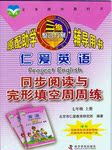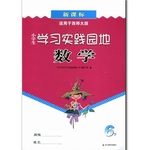
完形填空
Every Chinese-language textbook starts out with the standard phrases for greeting people, but as an American, I always found myself 1 to speak freely when it came to seeing guests off at the door. Just a good-bye would not do, yet that was all I had ever learned from the 2 books. So I would smile and nod, bowing like a Japanese and searching madly for words that would 3 over the visitor's leaving and make them feel they would be 4 to come again. In my unease, I often hid behind the skirts of my Chinese husband's kindness.
Then finally, listening to others, I began to pick up the phrases that 5 relationships and sent people off not only successfully but also skillfully.
6 for the Chinese includes a lot of necessary habitual practice. Although as a 7 , I'm not expected to observe or even know all the rules, I've had to learn the expressions of politeness and 8 at a leaving-taking.
The Chinese feel they 9 see a guest off to the farthest possible point--down the flight of stairs to the street below or perhaps all the way to the 10 bus stop. I've sometimes waited half an hour or more for my husband to return from seeing a guest off, 11 he's gone to the bus stop and waited for the 12 bus to arrive.
That's very well, but when I'm the guest being seen off, my protests are always 13 My hostess or host, or both, insists on 14 me down the stairs and well on my way, with my repeating the“Don't 15 to see me off at the every landing” . If I try to go fast to 16 them from following, they are simply out to the discomfort of having to run after me. Better to accept the inevitable(不可避免的).
Besides, that's going against Chinese 17 ,because haste (doing things quickly) is to be avoided. What do you say when you 18 someone? Not“Farewell or Godspeed(祝福)” , 19 “Go slowly” .To the Chinese it means“Take care”or“Watch your 20 ”,or some such caution(谨慎), but translated literally(字面意思)it means“Go slowly”.
|
(1) A.easy |
B.difficult |
C.unable |
D.effective |
|
(2) A.useful |
B.terrible |
C.priceless |
D.proper |
|
(3) A.smooth |
B.talk |
C.calm |
D.take |
|
(4) A.content |
B.ready |
C.welcome |
D.eager |
|
(5) A.sped |
B.broke |
C.destroyed |
D.eased |
|
(6) A.Parting |
B.Leaving |
C.Separating |
D.Interviewing |
|
(7) A.wife |
B.guest |
C.hostess |
D.foreigner |
|
(8) A.protest |
B.refuse |
C.explain |
D.state |
|
(9) A.can |
B.will |
C.may |
D.must |
|
(10) A.farthest |
B.nearest |
C.easiest |
D.shortest |
|
(11) A.although |
B.unless |
C.if |
D.since |
|
(12) A.fastest |
B.first |
C.next |
D.last |
|
(13) A.effective |
B.unnecessary |
C.useless |
D.troublesome |
|
(14) A.leading |
B.seeing |
C.inviting |
D.pushing |
|
(15) A.trouble |
B.have |
C.decide |
D.walk |
|
(16) A.protect |
B.keep |
C.discourage |
D.dismiss |
|
(17) A.rule |
B.custom |
C.design |
D.opinion |
|
(18) A.meet with |
B.talk with |
C.part from |
D.call on |
|
(19) A.and |
B.or |
C.but |
D.even |
|
(20) A.foot |
B.health |
C.shoe |
D.step |
|
(1) C ;每一本中文教科书都以标准的词语来教我去问候他人,但作一个美国人,我却发现我不能流畅地说出送别时用的语言来。这里不能用difficult,因为这里的逻辑主语是myself,不能说“我很困难”,而是“事情很难”。(2) B ;我所学到的东西实在无法在实际交往中运用,因此从作者的角度来说,这些教科书应该是“糟糕、可怕的”。(3) A ;smooth over意思是“消除,掩饰”,这里指“消除客人离去时的尴尬”。(4) C ;千方百计地使客人感到我是欢迎他们再来拜访的,所以用welcome最为合适。(5) D ;我听从别人的建议,学习了能够“润滑”人际关系的词语。ease意思是“使悠闲、放松”。(6) A (7) D ;作为一个“外国人”,人们并不强求我必须知道中国的这些礼仪。(8) A ;这里protest可以理解为“婉言拒绝”。另外,下文也用了该词。(9) D ;中国人认为他们应该把客人送得尽可能远。(10) B (11) D ;我有时候不得不花半个多小时等丈夫回来,因为他把客人送到车站,然后再等下一班公交车到来。since在这里表示原因。(12) C (13) C ;但是,当我去做客,主人送别我时,我的辞送往往不起作用。(14) B (15) A ;每每我都会说“别费心送我了”。trouble to do sth.意思是“费心去做某事”。(16) B ;我快跑以期望主人赶不上我,因此不再把我送得很远。(17) B (18) C ;当你和某人分别时,你说什么呢?part from意思是“与……离别”。(19) C (20) D ;watch one's step是固定短语,意思是“留神脚下,谨慎行走”。 |


 仁爱英语同步练习册系列答案
仁爱英语同步练习册系列答案 学习实践园地系列答案
学习实践园地系列答案科目:高中英语 来源:黄冈题库练考新课堂 高一英语 题型:054
完形填空
One day in September we were doing repair work on my parents’ old house to get it ready for my youngest daughter’s wedding. We had to 1 a great climbing plant that had grown 2 a roof beam (房梁), so that we could repair the roof and 3 the walls.
When my husband was taking the plant away, he found the 4 of a blackbird that had made its home in the leaves. He then 5 something 6 among that mass of earth and straw of the nest. He broke the earth around it into pieces with his finger tips and, to his 7 , saw glittering gold. It was a child’s bracelet(手镯). He ran into the house to 8 me.
“You won’t believe that the 9 blackbirds not only steal the best fruit we 10 to feed on,” he said,“but they also want their children to 11 in a cradle of gold!”
When my daughter came over on the eve of the 12 , we told her about this 13 occurrence(发生的事).
“Don’t you remember ,mother?”she said with a loud 14 .“When I was eight, you gave me a bracelet that I 15 a few days later while out playing in the yard? It was this one!”
As the bracelet no longer 16 its owner and was dirty, I decided to take it into my safekeeping.
In December of the following year, the young couple’s baby son was baptized(受洗礼). Among the 17 the newborn baby received, I placed his mother’s bracelet, now shining like 18 . I hope that if my grandson 19 loses it, one of the 20 that live in my backyard is somewhere nearby.
1.
[ ]
2.
[ ]
3.
[ ]
4.
[ ]
5.
[ ]
6.
[ ]
7.
[ ]
8.
[ ]
9.
[ ]
10.
[ ]
11.
[ ]
12.
[ ]
13.
[ ]
14.
[ ]
15.
[ ]
16.
[ ]
17.
[ ]
18.
[ ]
19.
[ ]
20.
[ ]
查看答案和解析>>
科目:高中英语 来源:黄冈题库练考新课堂 高一英语 题型:054
完形填空
As Christmas is coming, there are presents to be bought, cards to be sent, and rooms to be cleaned. Parents are filled with 1 jobs of hiding presents from 2 young children. If the gifts are large, this is sometimes a real 3 . On Christmas Eve, young children find the excitement almost unbearable (不可忍受的). They are 4 between the wish to go to bed early so that Father Christmas will 5 their presents quickly, and the wish to stay up late so that they will not miss the fun. The wish for gifts usually proves 6 . But though children go to bed early, they often lie awake in bed for a long time, hoping to 7 Father Christmas.
Last Christmas, my wife and I 8 managed to hide a few large presents in the storeroom. I 9 the moment when our son, Jimmy, would ask me where the new bike had come from, but 10 he did not see it.
On Christmas Eve, it took the children hours to go to sleep. It must have been nearly 11 when my wife and I went quietly into their room and began 12 stockings. Then I 13 in the bike for Jimmy and left it beside the Christmas tree. We knew we would not get much 14 that night, for the children were sure to get up early. At about five o’clock the next morning, we were 15 by loud sounds coming from the children’s room-they shouted excitedly! 16 I had time to get out of bed, Jimmy came 17 into our bedroom on his new bike, and his sister, Mary, 18 close behind, pushing her new baby carriage. Even the baby arrived, he moved on the 19 and knees into the room dragging a large balloon behind him. Suddenly it 20 . That woke us up completely. The day had really begun with a bang.
1.
[ ]
2.
[ ]
3.
[ ]
4.
[ ]
5.
[ ]
6.
[ ]
7.
[ ]
8.
[ ]
9.
[ ]
10.
[ ]
11.
[ ]
12.
[ ]
13.
[ ]
14.
[ ]
15.
[ ]
16.
[ ]
17.
[ ]
18.
[ ]
19.
[ ]
20.
[ ]
查看答案和解析>>
科目:高中英语 来源:山西省山大附中2011-2012学年高二10月月考英语试题 题型:054
| |||||||||||||||||||||||||||||||||||||||||||||||||||||||||||||||||||||||||||||||||||||||||||||||||||||||||||||||||||||||||||||||||||||||||||||||||||||||||||||||||||||||||||||||||||||||||||||||||||||||||||||||||||||||||||||||||||||||||||||||||||||||||||||||||||||||||||||||||||||||||||
查看答案和解析>>
科目:高中英语 来源:陕西省师大附中2012届高三第四次模拟考试英语试题 题型:054
| |||||||||||||||||||||||||||||||||||||||||||||||||||||||||||||||||||||||||||||||||||||||||||||||||||||||||||||||||||||||||||||||||||||||||||||||||||||||||||||||||||||||||||||||||||||||||||||||||||||||||||||||||||||||||||||||||||||||||||||||||||||||||||||||||||||||||||||||||||||||||||
查看答案和解析>>
科目:高中英语 来源:2013年普通高等学校招生全国统一考试(湖北卷)、英语 题型:054
| |||||||||||||||||||||||||||||||||||||||||||||||||||||||||||||||||||||||||||||||||||||||||||||||||||||||||||||||||||||||||||||||||||||||||||||||||||||||||||||||||||||||||||||||||||||||||||||||||||||||||||||||||||||||||||||||||||||||||||||||||||||||||||||||||||||||||||||||||||||||||||
查看答案和解析>>
湖北省互联网违法和不良信息举报平台 | 网上有害信息举报专区 | 电信诈骗举报专区 | 涉历史虚无主义有害信息举报专区 | 涉企侵权举报专区
违法和不良信息举报电话:027-86699610 举报邮箱:58377363@163.com